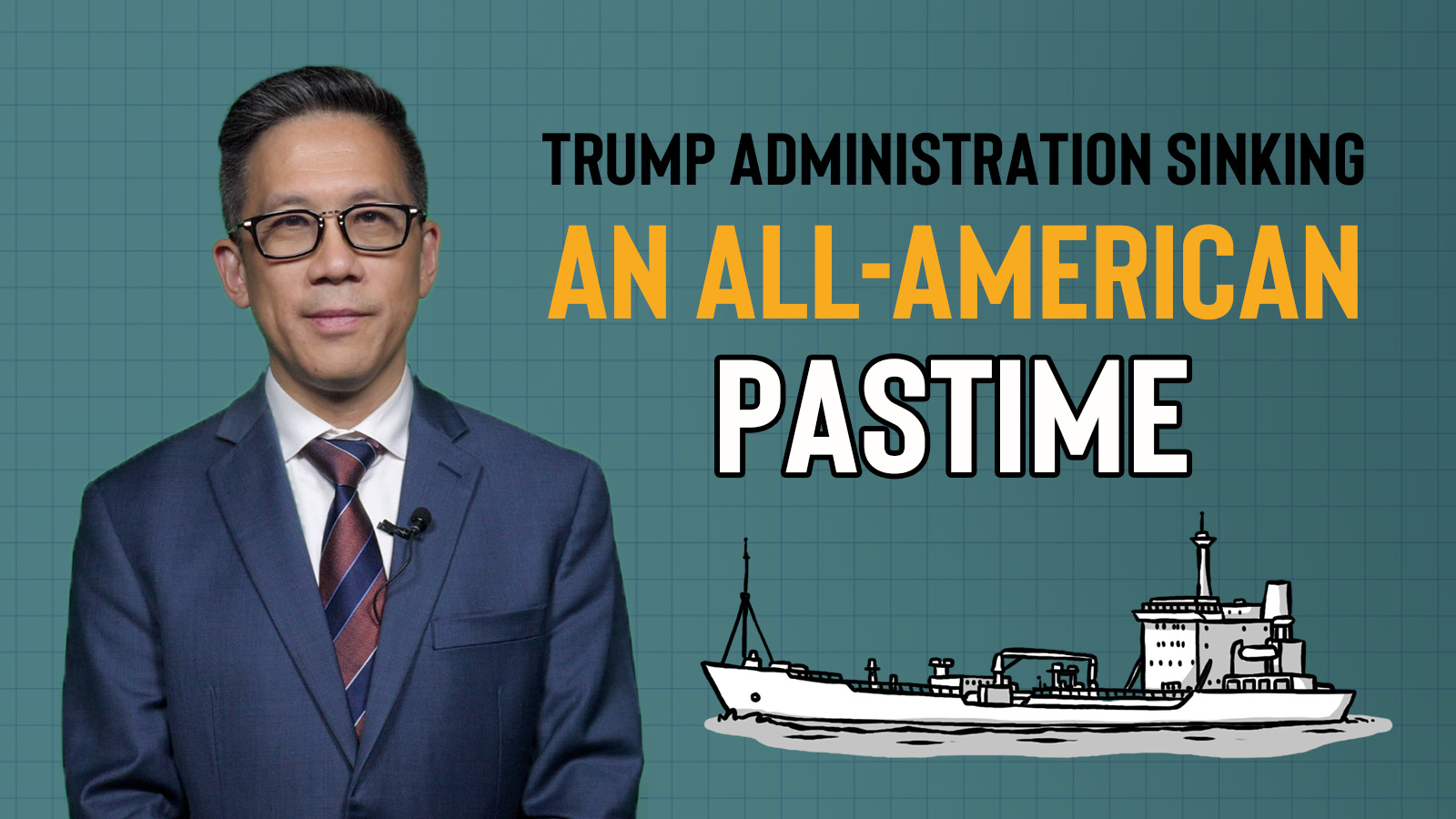
Opinions
10:47, 18-Sep-2018
Trump administration sinking an All-American pastime
Updated
10:21, 21-Sep-2018
Andy Mok
04:41

Editor's note: Andy Mok is the managing director of Red Pagoda Resources. The article reflects the author's opinion, and not necessarily the views of CGTN.
From Miami to Minnesota, the land of 10,000 lakes, and from Nantucket to Puget Sound in Washington State and the marinas of Orange County, California (the setting for the Real Housewives of Orange County), there is nothing more American than recreational boating.
Yet this All-American past-time is coming under threat because of the Trump Administration's tariffs against China.
The tariffs affect not just those wanting to buy boats for the first time and those looking to replace or upgrade, but also the nearly 35,000 American companies that manufacture them for both the US and global market and the 650,000 people these companies employ.
At the end of 2017 the US Dept. of Commerce levied tariffs on aluminum sheeting from China that totaled 200 percent. This type of material is used to make aluminum fishing and pontoon boats, which account for almost 45 percent of new boats on the market. If the worldwide tariffs of 10 percent on aluminum are added this means that the total tariffs on this kind of aluminum sheeting is more than 210 percent.
The tariffs are intended to target Chinese imports, but as noted by Craig Allen, president of the US China Business Council, tariffs often have second and third order effects that only become apparent in hindsight.
The story of Correct Craft, a company that manufactures boats and engines and employs 1,300 workers in six factories across the US is a case in point.
While one can readily expect that boat manufacturers relying on Chinese aluminum would be affected, one might not expect Correct Craft to be since it exclusively uses American aluminum.
But the tariffs have also resulted in a 20-30 percent price increase of domestic aluminum. As a result, Correct Craft's costs have gone up significantly.
More than 90 percent of aluminum used by American boat makers is sourced domestically; this second order effect hurts not just Correct Craft, but the entire American boating industry.
These higher costs, if passed through to consumers, will reduce demand through higher prices. If not, they could result in red ink for manufacturers and will likely lead to company layoffs which will have a domino effect on the local communities where employees live.
American boat manufacturers not only produce for the domestic market, but export markets are also an important source of sales for them. With the Trump administration raising tariffs globally, this has prompted retaliatory measures around the world.
For American boat makers, Canada, Mexico and the EU account for about 70 percent of total recreational boating exports. For Correct Craft, these markets represent more than half of its foreign sales. The counter-tariffs imposed by these three key markets are putting 1.8 billion US dollars of American exports and the associated American jobs at risk.
While many Americans support the Trump administration's efforts to protect American jobs, especially those of working class Americans, the unpredictable effects of trade tariffs make them a dangerous weapon to use. The danger though is not necessarily to those being targeted but to those one is seeking to protect.
These tariffs are like artillery shells that detonate in mid-flight, because of this the collateral damage is greater than that to the intended targets. The damaging effect of tariffs are hard to predict, especially in a world of complex and integrated industrial supply chains and markets. The Trump administration could better achieve its laudable goal of protecting American workers by finding less problematic ways of doing so.
Script writer: Andy Mok
Animation consultant: Luo Qing
Animation director: Su Yi
Animation producers: Wu Xiao, Song Yuhan, Yuan Min
(If you want to contribute and have specific expertise, please contact us at opinions@cgtn.com.)

SITEMAP
Copyright © 2018 CGTN. Beijing ICP prepared NO.16065310-3
Copyright © 2018 CGTN. Beijing ICP prepared NO.16065310-3